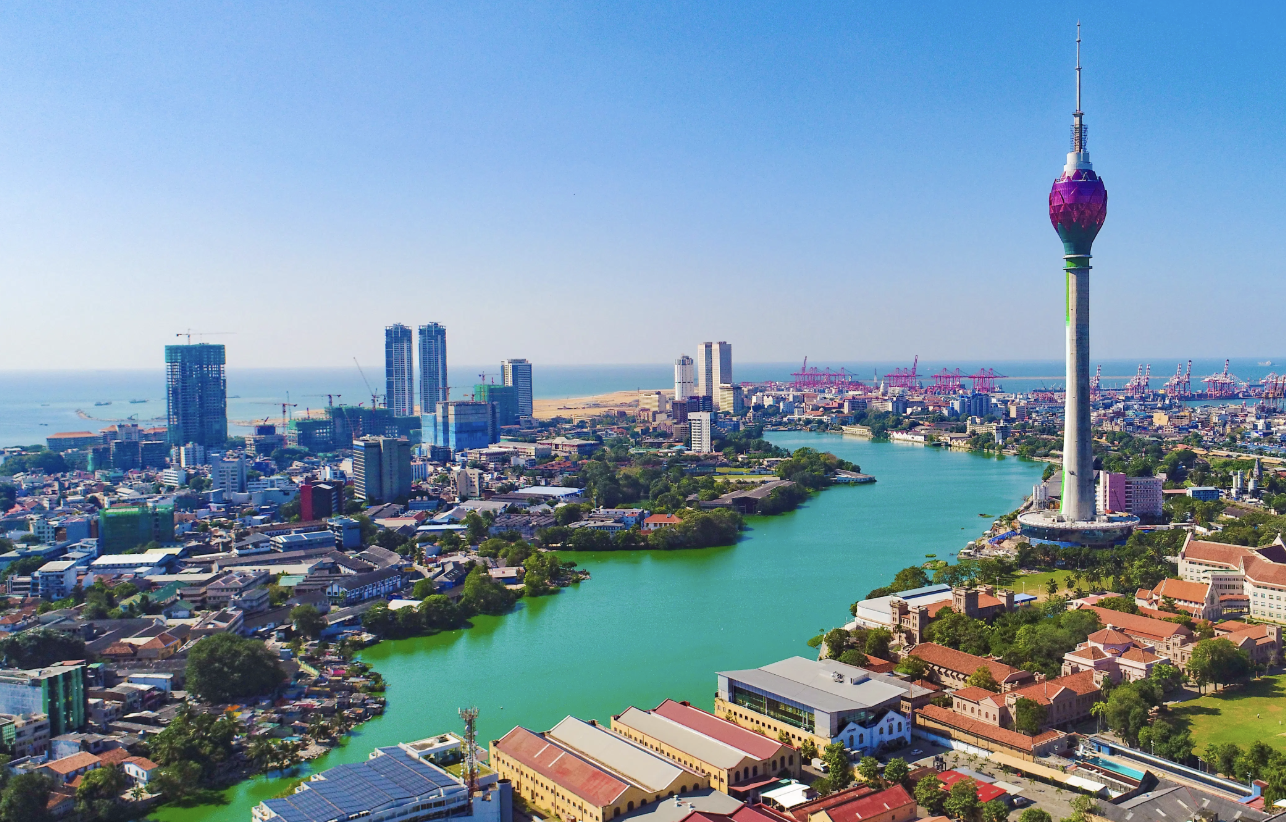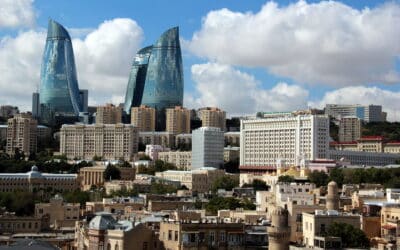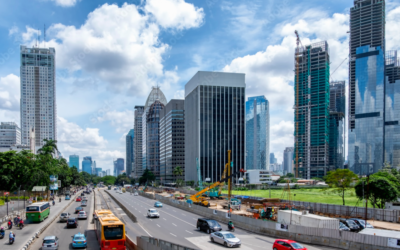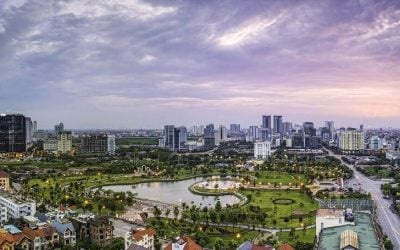Sri Lanka, often referred to as the “Pearl of the Indian Ocean,” is a country brimming with investment potential.
Indeed, a strategic location along major shipping routes, abundant natural resources, and emerging market status make Sri Lanka a compelling destination for foreign investors.
Despite recent economic challenges, Sri Lanka is on a path to recovery, with reforms and opportunities across various sectors.
For those looking to invest in Sri Lanka in 2025 and beyond, this guide offers insight into the nation’s promising future.
Why Invest in Sri Lanka?
Sri Lanka’s geographical position, nestled between India and Southeast Asia, gives it a competitive edge in trade and logistics.
The nation’s economy is a mix of agriculture, manufacturing, services, and tourism.
While still recovering from recent economic crises, Sri Lanka has proven its resilience, stabilizing its currency and inflation rates while attracting international aid and investment.
The country’s workforce is young, educated, and multilingual, making it an appealing destination for businesses seeking a cost-effective yet skilled labor force.
On top of that, Sri Lanka benefits immensely from preferential trade agreements, such as the Generalized System of Preferences Plus (GSP+) which facilitates duty-free exports to the European Union.
Cities and Towns in Sri Lanka
Sri Lanka’s urban centers are diverse, each offering unique opportunities for investors:
- Colombo: The capital and economic hub, Colombo is where most of the nation’s financial and commercial activities take place. It’s home to the Colombo Stock Exchange and major real estate developments, including the ambitious Port City Colombo project, which aims to transform the city into a global financial hub.
- Kandy: Known for its cultural significance and scenic beauty, Kandy is a growing center for tourism and education. Its proximity to tea plantations also makes it a hub for the agricultural sector.
- Galle: Famous for its historic Galle Fort, a UNESCO World Heritage Site, this coastal city attracts significant tourism. It’s also emerging as a hotspot for luxury real estate investments.
- Jaffna: Located in the northern part of the island, Jaffna is experiencing renewed growth following decades of conflict. It offers opportunities in agriculture, fisheries, and small-scale manufacturing.
- Hambantota: With a deep-water port and an international airport, Hambantota is positioned to become a major logistics and trade hub, although its development has faced some setbacks.

Sirigiya, also known as the Lion Rock Fortress built in the 5th century, is a UNESCO World Heritage site and one of the most intriguing tourist destinations in Asia.
How to Start a Company in Sri Lanka
Foreign investors in Sri Lanka can enjoy 100% ownership in most sectors, including tourism, manufacturing, and IT.
Starting a business in Sri Lanka is relatively straightforward compared to many other South Asian nations, thanks to its improving regulatory framework. Here’s what you need to know:
- Initial Setup: Investors should budget between $1,000 and $3,000 for legal fees and government charges. The process typically takes 2–4 weeks.
- Business Visa: A one-year business visa costs around $100 and can be extended. The government encourages foreign entrepreneurs to set up operations in key sectors.
- Restrictions: Certain industries, such as public transport, land ownership, and natural resources, have restrictions. For example, while foreigners can own buildings, land ownership often requires partnerships with Sri Lankan citizens or companies.
- Tax Rates: Corporate tax rates in Sri Lanka vary by sector but generally range from 14% to 30%. Export-oriented businesses benefit from lower rates and tax holidays.
How to Trade Stocks in Sri Lanka
The Colombo Stock Exchange (CSE) is the primary platform for trading equities in Sri Lanka. It features over 290 listed companies across diverse sectors, including banking, manufacturing, and tourism.
Some of the top-performing firms include John Keells Holdings, Commercial Bank of Ceylon, and Ceylon Tobacco Company.
While foreign investors can trade on the CSE, opening a brokerage account requires in-person verification or representation through a local agent.
The government has been working to modernize the stock market, introducing online trading platforms and regulatory improvements to attract foreign capital.
Sri Lanka’s Currency: The Rupee (LKR)
The Sri Lankan Rupee (LKR) is the nation’s official currency. Following a period of volatility, the government has implemented measures to stabilize the rupee.
The exchange rate sits at approximately 320 LKR to 1 USD and has steadily depreciated against other major world currencies in the past decade.
As such, anyone who is investing in Sri Lanka should be mindful of potential currency risks and consider hedging strategies when making any large investments here.
Key Sectors for Investment in Sri Lanka
Tourism and Hospitality
Sri Lanka’s tourism industry is one of the most promising sectors for foreign investment.
Known for its world-class beaches, cultural landmarks, and lush landscapes, the country attracts millions of tourists yearly.
In 2025, tourism is expected to rebound strongly as global travel recovers from the pandemic and travelers seek unique destinations.
The government has prioritized tourism by improving infrastructure, including highways, airports, and eco-tourism projects. Boutique hotels, wellness retreats, and adventure tourism ventures are particularly attractive investment areas.
Sri Lanka’s wildlife parks, historic sites like Sigiriya and Anuradhapura, and hill-country tea estates offer niche opportunities for tourism development.
For investors in Sri Lanka, the potential lies in creating premium experiences that cater to affluent international tourists. The rise of experiential travel means that ventures focusing on sustainability, such as eco-lodges and guided cultural tours, are likely to thrive.
Real Estate and Infrastructure
Urbanization is transforming cities like Colombo, Kandy, and Galle into bustling hubs of activity.
Colombo, in particular, is undergoing rapid modernization, with projects like Port City Colombo positioning it as a future financial center for South Asia.
This ambitious development includes commercial spaces, luxury apartments, and leisure facilities, offering significant opportunities for real estate investors.
Residential real estate is also in demand, driven by a growing middle class and expatriates returning to Sri Lanka.
High-rise developments and gated communities in urban areas are particularly popular. Additionally, the government’s focus on affordable housing projects creates opportunities for investors interested in public-private partnerships.
Infrastructure development is another critical area. Sri Lanka’s road networks, ports, and renewable energy projects are expanding, and the government is actively seeking foreign investment to fund these initiatives.
Those investing in Sri Lanka can explore opportunities in toll roads, port facilities, and green energy projects like solar and wind farms.
Agriculture and Agro-Processing
Sri Lanka’s agriculture sector is a cornerstone of its economy, employing a significant portion of the population. The country is renowned for its high-quality tea, spices, and rubber, which are major export commodities.
However, there is a growing focus on value-added agricultural products, such as organic teas, spice blends, and processed foods, which command premium prices in global markets.
For investors, the opportunities are vast. Organic farming, agro-processing facilities, and export-oriented agriculture are all high-potential areas.
The global demand for sustainable and ethically produced goods aligns well with Sri Lanka’s natural strengths.
Additionally, the government offers incentives for those investing in Sri Lanka’s agricultural modernization. This includes tax breaks and subsidies for tech adoption.

Construction sites for new high-rise buildings and infrastructures are found all over Sri Lanka, but especially in its capital city of Colombo.
With fertile soil and a favorable climate, Sri Lanka is well-positioned to become a leader in specialized agricultural exports.
Manufacturing and Export
Sri Lanka’s manufacturing sector is a key contributor to its economy, with apparel and textiles being the largest export industries.
The country is known for producing high-quality garments for global brands, leveraging its skilled workforce and access to preferential trade agreements like the Generalized System of Preferences Plus (GSP+), which allows duty-free exports to the European Union.
Beyond textiles, Sri Lanka is now diversifying its manufacturing base to include electronics, pharmaceuticals, and auto components.
The government is actively encouraging foreign direct investment in these areas by offering tax incentives, streamlined processes, and access to export markets.
Foreign investors can also benefit from setting up export-oriented manufacturing units. For example, electronics assembly, medical device production, and food processing are sectors with growing demand.
With its strategic location, Sri Lanka serves as a cost-effective base for exporting to South Asia, the Middle East, and Africa.
IT and Business Process Outsourcing (BPO)
Sri Lanka is emerging as a regional hub for IT and BPO services, thanks to its highly educated, English-speaking workforce.
The IT sector is supported by government initiatives such as tax holidays, reduced import duties for equipment, and the establishment of IT parks.
Software development, fintech, and IT-enabled services are among the most promising sub-sectors. Companies specializing in artificial intelligence, blockchain, and cloud computing can find a competitive edge in Sri Lanka.
Additionally, the BPO sector offers opportunities in customer support, data analytics, and back-office operations for global companies.
The rise of coworking spaces and tech incubators in Colombo and other cities reflects the growing momentum in Sri Lanka’s burgeoning IT sector.
As a foreign investor, partnering with local startups or setting up innovation hubs can yield significant returns while contributing to the nation’s digital transformation.
Should You Invest in Sri Lanka?
Sri Lanka’s future as an investment destination looks promising, but it comes with caveats. The government is making strides in stabilizing the economy, improving infrastructure, and attracting foreign capital.
Key reforms, such as liberalizing trade policies and creating a more investor-friendly environment, are expected to continue in 2025.
That said, challenges remain. Political stability and regulatory clarity is critical for sustaining confidence among investors. The government must also address infrastructure gaps and currency volatility to ensure long-term growth.
For foreign investors, Sri Lanka offers a mix of high-growth sectors and untapped potential. By focusing on areas like tourism, real estate, agriculture, manufacturing, and IT, investors can position themselves to benefit from the country’s upward trajectory.
The key is to approach investments with a long-term perspective, thorough due diligence, and a willingness to adapt to local conditions.
As Sri Lanka continues to rebuild and modernize, it’s clear that the country is on the cusp of a new era. For savvy investors, 2025 may be the perfect time to capitalize on opportunities in this dynamic and resilient nation.
After all, where challenges exist, so do opportunities – and Sri Lanka is full of both.
FAQs: Investing in Sri Lanka
Can Foreigners Own Property in Sri Lanka?
Foreigners can own property in Sri Lanka, but there are restrictions. While they cannot own freehold land outright, they can purchase apartments and condominium units above the fourth floor.
Additionally, foreigners can lease land on a long-term basis, typically up to 99 years. These regulations are designed to encourage foreign investment while maintaining local control over land resources.
Can Foreigners Own 100% of a Business in Sri Lanka?
Yes, Sri Lanka allows 100% foreign ownership in several sectors, including tourism, manufacturing, IT, and trade. This makes it relatively straightforward for foreign investors to establish and operate businesses without requiring a local partner.
However, certain industries, such as public transport, natural resources, and specific areas of agriculture, may have restrictions on foreign ownership, requiring careful review of regulations before proceeding.
Can Foreigners Trade Stocks in Sri Lanka?
Yes, foreigners can trade stocks on the Colombo Stock Exchange (CSE). They're required to open a Securities Investment Account (SIA) with a local bank and go through a licensed stockbroker to participate in the market. The CSE offers a range of opportunities, including investments in banking, manufacturing, and tourism-related companies.
Is Trading Cryptocurrency in Sri Lanka Legal?
Cryptocurrency operates in a gray area in Sri Lanka. While there is no outright ban, the government and central bank have issued warnings about the risks associated with trading digital currencies.
Investors interested in crypto-related ventures in Sri Lanka should proceed with caution and stay updated on evolving regulations.
Why Should Anyone Invest in Sri Lanka Despite the Risks?
Sri Lanka offers a unique mix of opportunities for investors, thanks to its strategic location along major shipping routes, a young and educated workforce, and a diverse economy.
Meanwhile, the country’s government has been actively working to attract foreign investment by improving infrastructure and offering tax incentives.







